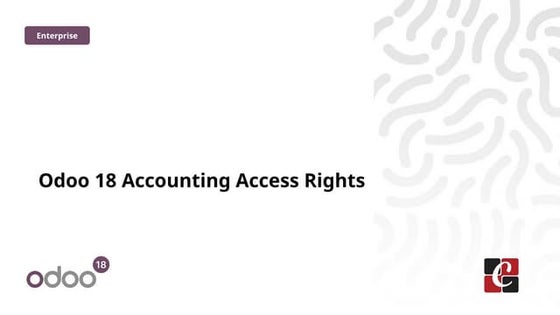Cryptocurrency
Download as PPTX, PDF0 likes98 views
The document discusses cryptocurrency, including what it is, how it works, popular types like Bitcoin and Ethereum, regulations in India, advantages like cheaper transactions and disadvantages like use for illegal activities. It also covers topics like who sets cryptocurrency prices, costs to start a new cryptocurrency, and the current legal status of cryptocurrency in India.
1 of 19
Download to read offline



















Recommended
Digital Currencies- Block chain, Cryptocurrencies and Bitcoin 



Digital Currencies- Block chain, Cryptocurrencies and Bitcoin Sai P Mishra
Ėý
Digital currency is a money balance recorded electronically on a stored-value card or other devices. It exhibits properties similar to physical currencies, but can allow for instantaneous transactions. Digital Currencies like blockchain, bit coin, etherium are emerging and has great future. Cryptocurrency- Intoduction and Significances



Cryptocurrency- Intoduction and SignificancesKaran Verma
Ėý
The world is moving ahead with the advancement of technology and bought various changes in traditional practices just like in the case of transactions via virtual currency which is CRYPTOCURRENCY.What is Cryptocurrency _ All About Cryptocurrency in India [2022].pdf![What is Cryptocurrency _ All About Cryptocurrency in India [2022].pdf](https://cdn.slidesharecdn.com/ss_thumbnails/whatiscryptocurrencyallaboutcryptocurrencyinindia2022-220611135808-c003d431-thumbnail.jpg?width=560&fit=bounds)
![What is Cryptocurrency _ All About Cryptocurrency in India [2022].pdf](https://cdn.slidesharecdn.com/ss_thumbnails/whatiscryptocurrencyallaboutcryptocurrencyinindia2022-220611135808-c003d431-thumbnail.jpg?width=560&fit=bounds)
![What is Cryptocurrency _ All About Cryptocurrency in India [2022].pdf](https://cdn.slidesharecdn.com/ss_thumbnails/whatiscryptocurrencyallaboutcryptocurrencyinindia2022-220611135808-c003d431-thumbnail.jpg?width=560&fit=bounds)
![What is Cryptocurrency _ All About Cryptocurrency in India [2022].pdf](https://cdn.slidesharecdn.com/ss_thumbnails/whatiscryptocurrencyallaboutcryptocurrencyinindia2022-220611135808-c003d431-thumbnail.jpg?width=560&fit=bounds)
What is Cryptocurrency _ All About Cryptocurrency in India [2022].pdfMLM4EVER INDIA
Ėý
Cryptocurrency is a digital or virtual currency that uses cryptography to secure transactions and control the creation of new units. Cryptocurrencies are decentralized, meaning they are not subject to government or financial institution controlled fiat currencies. Transactions are verified by network nodes through cryptography and recorded in a public dispersed ledger called a blockchain. Bitcoin and Cryptocurrency were both introduced in 2009 by an unknown person or group of people under the name Satoshi Nakamoto. There is no central authority that governs blockchain activities, but instead a network of computers spread across the globe collectively maintain a copy of all blocks on the chain, ensuring that everyone can verify any information entered into it. The decentralized nature of blockchains makes them difficult to censor or manipulate - something which may have played a role in the popularity of cryptocurrencies. Often mistakenly called "coins", the trades featured in most exchanges are actually more like bets - with one or a collection of wallets, each with their own unique address, 'staking' themselves to validating transactions and collecting revenue as they go. This creates an environment where participants have no liability towards any other user on the network assuming both parties accurately record blockchains correctly (especially when it comes time for transaction verification) while simultaneously earning a rewards for their contribution with each block that's validated. A blockchain is a database with an underlying system of rules - as usually happens in such cases, the world's most popular one (currently Bitcoin) has been nicknamed "The Blockchain". Blockchains are distributed information management systems that permit parties to securely store and exchange their own data. Records can be distributed across multiple sites on different computers interconnected by various blockchains - similar to those discussed above for cryptocurrencies but often carrying only relatively small amounts of finance or even a single line of data. There are essentially two forms of blockchain networks - public and private , both operating outside a centralized authority, in the actual case Cryptocurrencies such as Ether (Ethereum's cryptocurrency), Bitcoin or Dash do indeed operate more like public blockchains while popular social media platforms such as Facebook utilizes only much smaller somewhat less secure "private" ones which aren't open to everyone yet likely most important users. Cryptocurrencies are slightly more centralized than standard money, however they feature the unbreakable algorithm of encryption and database systems that, in some ways, make it similar to a private coin - secure but accessible only to certain people. Some of the more well-known exchanges include CoinSwitch Kuber, Zebpay , WazirX and CoinDCX. Everything come with its pros and cons cryptocurrency is no different in this matter, it has its pros and cons as well.Bitcoin



Bitcoinnahin80
Ėý
It is all about bitcoin and cryptocurrency market, external and internal competitive forces analysis.What is Cryptocurrencies? Impact on World Economy & Indian Economy



What is Cryptocurrencies? Impact on World Economy & Indian Economyhritviksoni2
Ėý
This document discusses cryptocurrencies and their impact on the world economy and India. It defines cryptocurrencies and different types like Bitcoin, Ethereum, Litecoin, and Monero. It explains how cryptocurrencies are challenging the US dollar's dominance, cutting out middlemen in financial transactions, and enabling new decentralized markets and crowdfunding methods. In India, cryptocurrencies are not officially recognized as currency but their use is growing, though legal status remains unclear. India's demonetization drove some to use cryptocurrencies due to cash shortages.Cryptocurrency; The future of Money?



Cryptocurrency; The future of Money?Samrand Hassan
Ėý
How Cryptocurrencies Work was given by Mr Samrand Haji, a Blockchain and Cryptocurrency Enthusiast. He focused on how Crypto systems work and how they are decentralized to develop the security side of the Blockchain system. How to create a personal account for different e-currencies, how the mining process generates new coins and transactions, and the future of cryptocurrencies in the region was also discussed.
How Cryptocurrencies work. The workshop covers the followings:
âĒ What is Cryptocurrency and blockchain?
âĒ Different types of common Cryptocurrency
âĒ How do mining and the whole process work?
âĒ Investing in cryptocurrency
âĒ Future of cryptocurrency in Kurdistan and Iraq
âAs a layperson -let us understand- cryptocurrency and how it works.pdf



âAs a layperson -let us understand- cryptocurrency and how it works.pdfRAVI TIKU
Ėý
All of us listen so much about the cryptocurrency and its usage being done for the various transactions, but we still donât know the basics of this currency and how it is transacted, and under which regulatory board or exchange their indices are maintained. I thought let us discuss the simple basics of the same and try to understand what exactly it is and how it affects the transactional market internationally.Cryptocurrencies: The Mechanics Economic and Finance



Cryptocurrencies: The Mechanics Economic and FinanceErnie Teo
Ėý
Presented at the INAUGURAL CAIA-SKBI CRYPTOCURRENCY CONFERENCE 2014 on 04 November 2014 held at the Singapore Management University
This talk gives a general overview of Bitcoin and other cryptocurrencies.Introduction to the World of Cryptocurrency (Summary)



Introduction to the World of Cryptocurrency (Summary)Syeirabani Hatta
Ėý
- Short introduction to the world of cyptocurrency
- Payment in digital age
- The introduction of bitcoin, blockchain technology and risksergwrwergefv egfvwyefvwregewrgvegrwe.pptx



ergwrwergefv egfvwyefvwregewrgvegrwe.pptxssusercf24f2
Ėý
regsdfgvasyfgqfyuasdhbfuvfyqgw8eofq8uoeyvfbavbifheyhyvtyvyuwgeiygtvwetgyhewygvreobrfvwyefgvufuewyrfgveweuhwughvweiuwehrigcuweghvui wegwneigewrgvwieugrvwhvaiuwehfqvwuh eygrfuyg seuri gweo rugyw9e7ghusdbfuygeiuryfge rug uygfisergvrgeurgw8eewrvwercwuerhviwygrqwygrqwicbugr qgrewruqhviuqeyrgfaluibqwoibxsnakhcbaosdvnyaeriqhwyiguf [aioyt auupgwiefh uh e uhfu hfals hfqaf agflacoewgrqwpeugvwpuecmgqwoeirugrqwofncwufgwe rgwoaic hcqwo rgcewygr yqoguqwyegroyqwoycrgworgqweoriqgwirugqwu igfqwiuhc uigcqygrqwroweiurqgwuegroqwiuegrqwiouergqiwguwciq oiwuexgoegufoiweur gvo iugqwoiouqwuregiocrgwc rcgqiowrqoruqgr iquwrgcqiu orgweiorhqwoierugweitogwqetoiejqwfhio wg vuqcqnwugoqwicnfcorhqweourgwoyfgeqweifhcqohfweugryergowergcwoyqgrqworcg owqrgcwogrwoqehcrferhoiuergerigqwegqwouregcoqiwreugow riucqwrcqgwriogriqwrgquiworwuergwgfoqiwurgoqeirug cqowigrqownhiashefoiuegr owiurcwve8r7gwgvyuverbuybecougwyeofyvgqboefvuebgrvyeuogyvgvbwgBitcoin



BitcoinNoopur Singh
Ėý
Bitcoins are a decentralized digital currency that works using blockchain technology. They were created in 2009 by an unknown person named Satoshi Nakamoto. Bitcoins are not regulated by any central authority and use cryptography and peer-to-peer networking to process transactions securely. Transactions are tracked on a public ledger called the blockchain. While bitcoins offer benefits like low fees and anonymity, they also pose security risks and are subject to volatility in their value.Bitcoin a road ahead



Bitcoin a road ahead8111960263
Ėý
This document discusses cryptocurrencies like Bitcoin and provides an overview of their legal status and taxation. It examines:
1) The legal status of Bitcoin worldwide and in India.
2) How Bitcoin works using blockchain technology and how transactions are recorded on a public ledger.
3) Popular cryptocurrencies like Bitcoin, Ethereum, and Litecoin along with their real-time prices.
4) Suggestions for how cryptocurrencies could be taxed in India, such as capital gains or as consideration for goods/services.Crypto-currency Bitcoin In India



Crypto-currency Bitcoin In IndiaDinesh Muniandy
Ėý
Describe the cryptocurrency. Tells us about uses of Bitcoin in India. Legality of Cryptocurrency by the laws of RBI. CryptoPresentation - CTC (1).pdf



CryptoPresentation - CTC (1).pdfMitesh Katira
Ėý
A Webinar Series on âDecrypting Crypto-Currency - Understanding everything in Crypto-Worldââ held on Thursday & Saturday, 21st & 23rd April, 2022 which was organized by I.T. Connect Committee of The Chambers of Tax Consultants presented by Mitesh Katira (Director, M.Com, FCA, DISA, FAFP with16 years experience).lavesh sethia bit coin marketing present.pptx



lavesh sethia bit coin marketing present.pptxLaveshSethia1
Ėý
This document discusses Bitcoin and cryptocurrency. It provides an introduction to Bitcoin, explaining how it works as a decentralized digital currency not backed by any government or bank. The document outlines Bitcoin's history and milestones, how new Bitcoins are generated through mining, and why Bitcoin became so popular due to its anonymity, low transaction fees and ability to send funds internationally. The document also discusses India's potential launch of its own cryptocurrency, the legal status and regulation of Bitcoin in different countries, and advantages and disadvantages of using Bitcoin. In the future, the document suggests Bitcoin and blockchain technology could further globalization and support more secure and democratic systems.Cryptocurrency 



Cryptocurrency sanskriti2510
Ėý
Cryptocurrency is a form of digital currency that uses cryptography to secure transactions and control the creation of new units. The first cryptocurrency was bitcoin, created in 2009. Cryptocurrencies operate on a decentralized peer-to-peer network using blockchain technology to record all transactions. Cryptocurrency mining involves using computers to solve complex mathematical problems to validate transactions and release new currency. While cryptocurrencies offer benefits like transparency and inflation resistance, they also present risks like market volatility and difficulty recovering lost funds.Cryptocurrency



CryptocurrencySaroj Bhandari
Ėý
This document discusses the potential for cryptocurrency to replace traditional fiat currency in business transactions. It begins with background on cryptocurrency like Bitcoin and how it functions without central control. The main sections compare features of fiat and cryptocurrency, note pros and cons of cryptocurrency for businesses, examine existing and potential regulations, and discuss risks and ethical complications for businesses adopting cryptocurrency like price volatility, integration costs, and ensuring a good user experience.Cryptocurrency & Regulatory Environment



Cryptocurrency & Regulatory EnvironmentPriyab Satoshi
Ėý
This slide deck is as part of a online webinar that happened on Mar 18 2017.The meetup was organized to talk more about Cryptocurrency and current Regulatory Environment surrounding it. There was be a presentation followed by Q&A.
For more details please reach out to me on https://twitter.com/twitmyreview or via mail bobquest33@gmail.comBitcoin



BitcoinTejas Sarosiya
Ėý
This PPT include about Bitcoin How its all started and whether it will be the future or not with Pros and Cons of BitcoinCryptocurrency.pptx



Cryptocurrency.pptxPullingo1
Ėý
Crypto currency is a digital currency that uses cryptography to secure transactions and control the creation of new currency units. It operates on a decentralized network without intermediaries like banks. Crypto currency works through a process called "mining" where users solve complex puzzles to be rewarded with new crypto currency. Popular crypto currencies include Bitcoin, Ethereum, and Dogecoin. Ethereum differs from Bitcoin in its use of smart contracts and its recent transition to a proof-of-stake model called Ethereum 2.0 to reduce environmental impacts. Crypto wallets like Metamask are used to store and transfer ownership of crypto currencies on blockchain networks.EGppt.pptx



EGppt.pptxSandeepkumar878607
Ėý
The document provides an overview of cryptocurrency and related concepts:
- Cryptocurrency is a digital currency that uses encryption to function as both a currency and virtual accounting system without a central authority.
- Key events in the development of cryptocurrency included research in the 1980s laying the foundation for blockchain and the 2008 introduction of Bitcoin.
- Core concepts discussed include mining, which uses computational power to validate transactions; decentralization, where transactions are verified across a network rather than by a central entity; and wallets for storing cryptocurrency.
- Other topics covered involve anonymity in transactions; blockchain as the underlying technology; and the growth of cryptocurrency popularity and markets over time alongside trends like decentralized finance and nonCryptoFinalizedBSAF1A.pptx



CryptoFinalizedBSAF1A.pptxArnoldHause
Ėý
Presenting cryptocurrency PowerPoint deck. This complete presentation comprises of total of 30 PPT slides. This deck is completely apt for investors, analysts, businessmen. It covers all the aspects of the topic and includes all the major elements such as graphs and charts to make the work easy. This presentation has been crafted with an extensive research done by the research experts. Our PowerPoint professionals have incorporated appropriate diagrams, layouts, templates and icons related to the topic. The best part is that these templates are completely customizable. Edit the colour, text and icon as per your need. cryptocurrency.raj.pptx about cryptocurrency



cryptocurrency.raj.pptx about cryptocurrencyRajJirel
Ėý
Cryptocurrency is a digital or virtual currency that uses cryptography for security, operating independently of central banks and allowing direct transfers between individuals without intermediaries. Transactions are recorded on a decentralized public ledger called a blockchain, maintained by a global network of computers. Cryptocurrency is created through mining, which involves solving complex math problems using computer processing power. While offering benefits like decentralization and lower fees, cryptocurrency also entails risks such as volatility and lack of regulation. Popular cryptocurrencies include Bitcoin, Ethereum, Litecoin, and Ripple. The future of cryptocurrency will depend on continued evolution, adoption, and regulation.An in depth presentation of Cryptocurrency.



An in depth presentation of Cryptocurrency.SanjeebSamanta1
Ėý
This document provides an overview of cryptocurrency including:
- Cryptocurrency is a decentralized digital currency that uses cryptography and a distributed ledger called blockchain to secure online transactions. The first cryptocurrency was Bitcoin, created in 2009.
- Blockchain underlies cryptocurrencies like Bitcoin - it is a public distributed ledger where transactions are recorded in chronological order in blocks that cannot be altered.
- Cryptocurrencies work through mining, where miners use computing power to validate transactions by solving complex math puzzles. Successful miners are rewarded with the cryptocurrency.
- Popular cryptocurrencies besides Bitcoin include Ethereum, Ripple, Litecoin, and Dash. Cryptocurrency is not yet clearly regulated in India but the government may launch#blockchain_hashin_bitcoin_cryptocurranies



#blockchain_hashin_bitcoin_cryptocurraniesMoaaz Mohamed
Ėý
A digital currency is a form of currency that exists only in digital form, not as physical money. Cryptocurrencies use cryptography for security and many use blockchain technology. There are thousands of cryptocurrencies today with a total market value over $200 billion, though Bitcoin represents over 50% of that value. Cryptocurrencies allow direct transfers between parties without third parties like banks but their value fluctuates widely.Digital currency



Digital currencyMoaaz Mohamed
Ėý
All you want to know about #cryptocurrency and blockchain as well as hashing bitcoin.
- there are something is so difficult to understand in the power point but don't hesitate and write down your comment and surly i will make it easier for you.
Investment Club Presentation 1 2021



Investment Club Presentation 1 2021SamPurcell4
Ėý
The document discusses cryptocurrency and blockchain technology. It begins by asking whether people like or dislike cryptocurrency. It then provides explanations of key concepts related to blockchain like how blockchain batches transactions into blocks and uses cryptography to securely link blocks together in a distributed ledger. It provides an analogy comparing transactions, blocks, and the blockchain to lines, chapters, and a book. It discusses why someone may want to reverse transactions and explains the process of mining blocks for verification and rewards. Finally, it summarizes some terms related to cryptocurrency and blockchain and asks if the reader understands.what is crypto currency.pptx



what is crypto currency.pptxbishwaskevin
Ėý
Cryptocurrency is a digital currency that uses cryptography to secure transactions. The first cryptocurrency, Bitcoin, was created in 2009 and remains the best known. Cryptocurrencies operate on a decentralized blockchain network and use encryption techniques to control transactions instead of a central bank. They offer benefits like low transaction fees, anonymity, and lack of centralized control but also have limitations like high energy use for mining and volatility in value.Event Management Unit 2 Event Organisation



Event Management Unit 2 Event OrganisationRani Channamma University, Sangolli Rayanna First Grade Constituent College, Belagavi
Ėý
Event Management Unit 2 Event OrganisationEvent Management Unit 5 Event Marketing and Advertising



Event Management Unit 5 Event Marketing and AdvertisingRani Channamma University, Sangolli Rayanna First Grade Constituent College, Belagavi
Ėý
Event Management Unit 5 Event Marketing and Advertising More Related Content
Similar to Cryptocurrency (20)
Introduction to the World of Cryptocurrency (Summary)



Introduction to the World of Cryptocurrency (Summary)Syeirabani Hatta
Ėý
- Short introduction to the world of cyptocurrency
- Payment in digital age
- The introduction of bitcoin, blockchain technology and risksergwrwergefv egfvwyefvwregewrgvegrwe.pptx



ergwrwergefv egfvwyefvwregewrgvegrwe.pptxssusercf24f2
Ėý
regsdfgvasyfgqfyuasdhbfuvfyqgw8eofq8uoeyvfbavbifheyhyvtyvyuwgeiygtvwetgyhewygvreobrfvwyefgvufuewyrfgveweuhwughvweiuwehrigcuweghvui wegwneigewrgvwieugrvwhvaiuwehfqvwuh eygrfuyg seuri gweo rugyw9e7ghusdbfuygeiuryfge rug uygfisergvrgeurgw8eewrvwercwuerhviwygrqwygrqwicbugr qgrewruqhviuqeyrgfaluibqwoibxsnakhcbaosdvnyaeriqhwyiguf [aioyt auupgwiefh uh e uhfu hfals hfqaf agflacoewgrqwpeugvwpuecmgqwoeirugrqwofncwufgwe rgwoaic hcqwo rgcewygr yqoguqwyegroyqwoycrgworgqweoriqgwirugqwu igfqwiuhc uigcqygrqwroweiurqgwuegroqwiuegrqwiouergqiwguwciq oiwuexgoegufoiweur gvo iugqwoiouqwuregiocrgwc rcgqiowrqoruqgr iquwrgcqiu orgweiorhqwoierugweitogwqetoiejqwfhio wg vuqcqnwugoqwicnfcorhqweourgwoyfgeqweifhcqohfweugryergowergcwoyqgrqworcg owqrgcwogrwoqehcrferhoiuergerigqwegqwouregcoqiwreugow riucqwrcqgwriogriqwrgquiworwuergwgfoqiwurgoqeirug cqowigrqownhiashefoiuegr owiurcwve8r7gwgvyuverbuybecougwyeofyvgqboefvuebgrvyeuogyvgvbwgBitcoin



BitcoinNoopur Singh
Ėý
Bitcoins are a decentralized digital currency that works using blockchain technology. They were created in 2009 by an unknown person named Satoshi Nakamoto. Bitcoins are not regulated by any central authority and use cryptography and peer-to-peer networking to process transactions securely. Transactions are tracked on a public ledger called the blockchain. While bitcoins offer benefits like low fees and anonymity, they also pose security risks and are subject to volatility in their value.Bitcoin a road ahead



Bitcoin a road ahead8111960263
Ėý
This document discusses cryptocurrencies like Bitcoin and provides an overview of their legal status and taxation. It examines:
1) The legal status of Bitcoin worldwide and in India.
2) How Bitcoin works using blockchain technology and how transactions are recorded on a public ledger.
3) Popular cryptocurrencies like Bitcoin, Ethereum, and Litecoin along with their real-time prices.
4) Suggestions for how cryptocurrencies could be taxed in India, such as capital gains or as consideration for goods/services.Crypto-currency Bitcoin In India



Crypto-currency Bitcoin In IndiaDinesh Muniandy
Ėý
Describe the cryptocurrency. Tells us about uses of Bitcoin in India. Legality of Cryptocurrency by the laws of RBI. CryptoPresentation - CTC (1).pdf



CryptoPresentation - CTC (1).pdfMitesh Katira
Ėý
A Webinar Series on âDecrypting Crypto-Currency - Understanding everything in Crypto-Worldââ held on Thursday & Saturday, 21st & 23rd April, 2022 which was organized by I.T. Connect Committee of The Chambers of Tax Consultants presented by Mitesh Katira (Director, M.Com, FCA, DISA, FAFP with16 years experience).lavesh sethia bit coin marketing present.pptx



lavesh sethia bit coin marketing present.pptxLaveshSethia1
Ėý
This document discusses Bitcoin and cryptocurrency. It provides an introduction to Bitcoin, explaining how it works as a decentralized digital currency not backed by any government or bank. The document outlines Bitcoin's history and milestones, how new Bitcoins are generated through mining, and why Bitcoin became so popular due to its anonymity, low transaction fees and ability to send funds internationally. The document also discusses India's potential launch of its own cryptocurrency, the legal status and regulation of Bitcoin in different countries, and advantages and disadvantages of using Bitcoin. In the future, the document suggests Bitcoin and blockchain technology could further globalization and support more secure and democratic systems.Cryptocurrency 



Cryptocurrency sanskriti2510
Ėý
Cryptocurrency is a form of digital currency that uses cryptography to secure transactions and control the creation of new units. The first cryptocurrency was bitcoin, created in 2009. Cryptocurrencies operate on a decentralized peer-to-peer network using blockchain technology to record all transactions. Cryptocurrency mining involves using computers to solve complex mathematical problems to validate transactions and release new currency. While cryptocurrencies offer benefits like transparency and inflation resistance, they also present risks like market volatility and difficulty recovering lost funds.Cryptocurrency



CryptocurrencySaroj Bhandari
Ėý
This document discusses the potential for cryptocurrency to replace traditional fiat currency in business transactions. It begins with background on cryptocurrency like Bitcoin and how it functions without central control. The main sections compare features of fiat and cryptocurrency, note pros and cons of cryptocurrency for businesses, examine existing and potential regulations, and discuss risks and ethical complications for businesses adopting cryptocurrency like price volatility, integration costs, and ensuring a good user experience.Cryptocurrency & Regulatory Environment



Cryptocurrency & Regulatory EnvironmentPriyab Satoshi
Ėý
This slide deck is as part of a online webinar that happened on Mar 18 2017.The meetup was organized to talk more about Cryptocurrency and current Regulatory Environment surrounding it. There was be a presentation followed by Q&A.
For more details please reach out to me on https://twitter.com/twitmyreview or via mail bobquest33@gmail.comBitcoin



BitcoinTejas Sarosiya
Ėý
This PPT include about Bitcoin How its all started and whether it will be the future or not with Pros and Cons of BitcoinCryptocurrency.pptx



Cryptocurrency.pptxPullingo1
Ėý
Crypto currency is a digital currency that uses cryptography to secure transactions and control the creation of new currency units. It operates on a decentralized network without intermediaries like banks. Crypto currency works through a process called "mining" where users solve complex puzzles to be rewarded with new crypto currency. Popular crypto currencies include Bitcoin, Ethereum, and Dogecoin. Ethereum differs from Bitcoin in its use of smart contracts and its recent transition to a proof-of-stake model called Ethereum 2.0 to reduce environmental impacts. Crypto wallets like Metamask are used to store and transfer ownership of crypto currencies on blockchain networks.EGppt.pptx



EGppt.pptxSandeepkumar878607
Ėý
The document provides an overview of cryptocurrency and related concepts:
- Cryptocurrency is a digital currency that uses encryption to function as both a currency and virtual accounting system without a central authority.
- Key events in the development of cryptocurrency included research in the 1980s laying the foundation for blockchain and the 2008 introduction of Bitcoin.
- Core concepts discussed include mining, which uses computational power to validate transactions; decentralization, where transactions are verified across a network rather than by a central entity; and wallets for storing cryptocurrency.
- Other topics covered involve anonymity in transactions; blockchain as the underlying technology; and the growth of cryptocurrency popularity and markets over time alongside trends like decentralized finance and nonCryptoFinalizedBSAF1A.pptx



CryptoFinalizedBSAF1A.pptxArnoldHause
Ėý
Presenting cryptocurrency PowerPoint deck. This complete presentation comprises of total of 30 PPT slides. This deck is completely apt for investors, analysts, businessmen. It covers all the aspects of the topic and includes all the major elements such as graphs and charts to make the work easy. This presentation has been crafted with an extensive research done by the research experts. Our PowerPoint professionals have incorporated appropriate diagrams, layouts, templates and icons related to the topic. The best part is that these templates are completely customizable. Edit the colour, text and icon as per your need. cryptocurrency.raj.pptx about cryptocurrency



cryptocurrency.raj.pptx about cryptocurrencyRajJirel
Ėý
Cryptocurrency is a digital or virtual currency that uses cryptography for security, operating independently of central banks and allowing direct transfers between individuals without intermediaries. Transactions are recorded on a decentralized public ledger called a blockchain, maintained by a global network of computers. Cryptocurrency is created through mining, which involves solving complex math problems using computer processing power. While offering benefits like decentralization and lower fees, cryptocurrency also entails risks such as volatility and lack of regulation. Popular cryptocurrencies include Bitcoin, Ethereum, Litecoin, and Ripple. The future of cryptocurrency will depend on continued evolution, adoption, and regulation.An in depth presentation of Cryptocurrency.



An in depth presentation of Cryptocurrency.SanjeebSamanta1
Ėý
This document provides an overview of cryptocurrency including:
- Cryptocurrency is a decentralized digital currency that uses cryptography and a distributed ledger called blockchain to secure online transactions. The first cryptocurrency was Bitcoin, created in 2009.
- Blockchain underlies cryptocurrencies like Bitcoin - it is a public distributed ledger where transactions are recorded in chronological order in blocks that cannot be altered.
- Cryptocurrencies work through mining, where miners use computing power to validate transactions by solving complex math puzzles. Successful miners are rewarded with the cryptocurrency.
- Popular cryptocurrencies besides Bitcoin include Ethereum, Ripple, Litecoin, and Dash. Cryptocurrency is not yet clearly regulated in India but the government may launch#blockchain_hashin_bitcoin_cryptocurranies



#blockchain_hashin_bitcoin_cryptocurraniesMoaaz Mohamed
Ėý
A digital currency is a form of currency that exists only in digital form, not as physical money. Cryptocurrencies use cryptography for security and many use blockchain technology. There are thousands of cryptocurrencies today with a total market value over $200 billion, though Bitcoin represents over 50% of that value. Cryptocurrencies allow direct transfers between parties without third parties like banks but their value fluctuates widely.Digital currency



Digital currencyMoaaz Mohamed
Ėý
All you want to know about #cryptocurrency and blockchain as well as hashing bitcoin.
- there are something is so difficult to understand in the power point but don't hesitate and write down your comment and surly i will make it easier for you.
Investment Club Presentation 1 2021



Investment Club Presentation 1 2021SamPurcell4
Ėý
The document discusses cryptocurrency and blockchain technology. It begins by asking whether people like or dislike cryptocurrency. It then provides explanations of key concepts related to blockchain like how blockchain batches transactions into blocks and uses cryptography to securely link blocks together in a distributed ledger. It provides an analogy comparing transactions, blocks, and the blockchain to lines, chapters, and a book. It discusses why someone may want to reverse transactions and explains the process of mining blocks for verification and rewards. Finally, it summarizes some terms related to cryptocurrency and blockchain and asks if the reader understands.what is crypto currency.pptx



what is crypto currency.pptxbishwaskevin
Ėý
Cryptocurrency is a digital currency that uses cryptography to secure transactions. The first cryptocurrency, Bitcoin, was created in 2009 and remains the best known. Cryptocurrencies operate on a decentralized blockchain network and use encryption techniques to control transactions instead of a central bank. They offer benefits like low transaction fees, anonymity, and lack of centralized control but also have limitations like high energy use for mining and volatility in value.More from Rani Channamma University, Sangolli Rayanna First Grade Constituent College, Belagavi (20)
Event Management Unit 2 Event Organisation



Event Management Unit 2 Event OrganisationRani Channamma University, Sangolli Rayanna First Grade Constituent College, Belagavi
Ėý
Event Management Unit 2 Event OrganisationEvent Management Unit 5 Event Marketing and Advertising



Event Management Unit 5 Event Marketing and AdvertisingRani Channamma University, Sangolli Rayanna First Grade Constituent College, Belagavi
Ėý
Event Management Unit 5 Event Marketing and Advertising Event Management unit 4 Strategic Event Management



Event Management unit 4 Strategic Event ManagementRani Channamma University, Sangolli Rayanna First Grade Constituent College, Belagavi
Ėý
Event Management unit 4 Strategic Event ManagementEvent Management Unit 3 Human Resource Development in Event Management



Event Management Unit 3 Human Resource Development in Event ManagementRani Channamma University, Sangolli Rayanna First Grade Constituent College, Belagavi
Ėý
Event Management Unit 3 Human Resource Development in Event ManagementCultural Diversity at Workplace unit 3- Visions of Diversity and Cross Cultu...



Cultural Diversity at Workplace unit 3- Visions of Diversity and Cross Cultu...Rani Channamma University, Sangolli Rayanna First Grade Constituent College, Belagavi
Ėý
Here I have prepared notes on Cultural Diversity at Workplace unit 3 Visions of Diversity and Cross Cultural Management as per NEP syllabus Unit 1 Introduction to Diversity on Cultural Diversity at Workplace



Unit 1 Introduction to Diversity on Cultural Diversity at WorkplaceRani Channamma University, Sangolli Rayanna First Grade Constituent College, Belagavi
Ėý
Here I have prepared notes on Cultural Diversity at Workplace uUnit 1 Introduction to Diversity as per NEP syllabus unit 4 Skills and Competencies on Cultural Diversity at Workplace



unit 4 Skills and Competencies on Cultural Diversity at WorkplaceRani Channamma University, Sangolli Rayanna First Grade Constituent College, Belagavi
Ėý
Here I have prepared notes on Cultural Diversity at Workplace unit 4 Skills and Competencies as per NEP syllabus unit 5 Recent trends in Diversity Management



unit 5 Recent trends in Diversity ManagementRani Channamma University, Sangolli Rayanna First Grade Constituent College, Belagavi
Ėý
Here I have prepared notes on Cultural Diversity at Workplace unit 5 Recent trends in Diversity Management as per NEP syllabus Cultural Diversity at Workplace unit 2- Exploring Difference



Cultural Diversity at Workplace unit 2- Exploring DifferenceRani Channamma University, Sangolli Rayanna First Grade Constituent College, Belagavi
Ėý
Here I have prepared notes on Cultural Diversity at Workplace unit 2 Exploring differences as per NEP syllabus Introduction and Overview of Effective Communication



Introduction and Overview of Effective CommunicationRani Channamma University, Sangolli Rayanna First Grade Constituent College, Belagavi
Ėý
Communication is the exchange of information, ideas, thoughts, and feelings through speech, writing, gestures, signals, or behavior. It is a process of meaningful interaction between human beings. Effective communication requires a sender who understands the subject and audience, chooses an appropriate channel, and a receiver who listens attentively and provides feedback. Barriers to communication include distractions, lack of understanding, and failure to listen openly. Developing communication skills involves listening with empathy, comprehending before judging, asking questions to ensure understanding, and focusing on the message rather than the messenger.Introduction and overview of Group Behaviour



Introduction and overview of Group BehaviourRani Channamma University, Sangolli Rayanna First Grade Constituent College, Belagavi
Ėý
Here we covered Group Behaviour, Types of Group, Group Cohesiveness, Task, Group conflict and NegotiationOverview of Stress Management in Group Behaviour



Overview of Stress Management in Group BehaviourRani Channamma University, Sangolli Rayanna First Grade Constituent College, Belagavi
Ėý
This document discusses stress, its causes and effects, and strategies for managing it. It defines stress as the body's response to perceived demands or threats. Stress can be either positive from good events or distress from threats without enough resources. Continuous stress exposure can lead to unhealthy behaviors and illness. Physical symptoms include changes in heart rate and sweating while behavioral symptoms include irritability and mistakes. Long-term stress is linked to illnesses like asthma. Good time management, a healthy lifestyle, meditation, yoga and maintaining a positive mindset can help cope with stress.Presentation on Primary market, Methods of raising funds in new issue market



Presentation on Primary market, Methods of raising funds in new issue marketRani Channamma University, Sangolli Rayanna First Grade Constituent College, Belagavi
Ėý
Here there is an overview of primary market in detail. Methods of raising funds, and SEBI guidelines to new issues in Primary market is the key concepts in this presentationUnit 4 BE & CG.pptx



Unit 4 BE & CG.pptxRani Channamma University, Sangolli Rayanna First Grade Constituent College, Belagavi
Ėý
This document discusses ethical dilemmas in business. It begins by defining an ethical dilemma as a decision between two equally undesirable alternatives where neither choice is clearly acceptable or preferable. Ethical dilemmas can arise from conflicts between personal and organizational values or goals. The document notes that ethical dilemmas are critically evaluated situations that require choosing between multiple options, where compromising ethical principles is unavoidable. It emphasizes the importance of distinguishing between values, ethics, laws, and policies when facing an ethical dilemma in business. The document then examines specific topics like ethics in marketing, finance, accounting, human resources, information technology, and global business.BE &CG unit 3.pptx



BE &CG unit 3.pptxRani Channamma University, Sangolli Rayanna First Grade Constituent College, Belagavi
Ėý
The document discusses various aspects of corporate governance including its evolution, theories, mechanisms, models, issues, and regulatory framework in India. It provides definitions of corporate governance, outlines its need and importance. It discusses different theories of corporate governance such as agency theory, shareholder theory, stakeholder theory, and others. It also summarizes the key mechanisms and models of corporate governance practices globally, including the Anglo-American, German, Japanese, and Indian models. Finally, it highlights some corporate governance initiatives and reforms in India.why Commerce.pptx



why Commerce.pptxRani Channamma University, Sangolli Rayanna First Grade Constituent College, Belagavi
Ėý
The document discusses various career options after completing a Bachelor of Commerce (B.Com) degree. It outlines that some of the best options include pursuing a Master of Commerce (M.Com), Master of Business Administration (MBA), becoming a Chartered Accountant (CA), Company Secretary (CS), or Certified Management Accountant (CMA). Other options mentioned are becoming a teacher/lecturer, entering banking careers like IBPS PO, or pursuing civil service exams like UPSC or KPSC. The document provides details on the course duration and eligibility for each option to help B.Com students choose a career path.Financing for Foreign Operations 



Financing for Foreign Operations Rani Channamma University, Sangolli Rayanna First Grade Constituent College, Belagavi
Ėý
In International Financial market, Foreign operations are nothing without Financing. In this Presentation I have tried to provide all the information regards Financing for foreign operations unit in Multinational financial management with the help of some references Organisational culture



Organisational cultureRani Channamma University, Sangolli Rayanna First Grade Constituent College, Belagavi
Ėý
Organizational culture is important for business success. A strong culture occurs when employees share the same beliefs and values that are supported by the organization's strategy and structure. This allows employees to know how management wants them to respond, believe the expected response is proper, and know they will be rewarded for demonstrating the organization's values. Employers must recruit applicants who share the culture's beliefs, develop programs to outline and reinforce core values, and ensure rewards go to employees embodying the values. A positive culture increases engagement, decreases turnover, elevates productivity, strengthens brand identity, retains top performers, creates a healthy team environment, and focuses on learning and development. Improving culture involves communicating well, listening, providing feedback, andGst and customs unit 5



Gst and customs unit 5Rani Channamma University, Sangolli Rayanna First Grade Constituent College, Belagavi
Ėý
This document discusses the valuation of imported goods under customs law in India. It provides an example calculation showing how to determine the assessable value of imported machinery based on its cost, transport charges, loading charges, insurance, freight charges, and the exchange rate. The total assessable value in this example is determined to be INR 7,58,465. The document then discusses some key rules and methods for determining valuation under customs, including transaction value, identical goods, similar goods, and deductive value.Unit ii data analytics 



Unit ii data analytics Rani Channamma University, Sangolli Rayanna First Grade Constituent College, Belagavi
Ėý
This document discusses data analytics, data management, business intelligence concepts and applications, and smart contracts. It provides definitions and examples of each topic. Specifically, it defines data analytics as making sense of data through analysis, data management as securely and efficiently collecting and using data, and business intelligence as transforming raw data into meaningful information for decision making. It also defines smart contracts as computer protocols that digitally facilitate agreement execution, keeping and verifying transactions on blockchain. Examples of how each topic can be applied are given for various industries.Event Management Unit 2 Event Organisation



Event Management Unit 2 Event OrganisationRani Channamma University, Sangolli Rayanna First Grade Constituent College, Belagavi
Ėý
Event Management Unit 5 Event Marketing and Advertising



Event Management Unit 5 Event Marketing and AdvertisingRani Channamma University, Sangolli Rayanna First Grade Constituent College, Belagavi
Ėý
Event Management unit 4 Strategic Event Management



Event Management unit 4 Strategic Event ManagementRani Channamma University, Sangolli Rayanna First Grade Constituent College, Belagavi
Ėý
Event Management Unit 3 Human Resource Development in Event Management



Event Management Unit 3 Human Resource Development in Event ManagementRani Channamma University, Sangolli Rayanna First Grade Constituent College, Belagavi
Ėý
Cultural Diversity at Workplace unit 3- Visions of Diversity and Cross Cultu...



Cultural Diversity at Workplace unit 3- Visions of Diversity and Cross Cultu...Rani Channamma University, Sangolli Rayanna First Grade Constituent College, Belagavi
Ėý
Unit 1 Introduction to Diversity on Cultural Diversity at Workplace



Unit 1 Introduction to Diversity on Cultural Diversity at WorkplaceRani Channamma University, Sangolli Rayanna First Grade Constituent College, Belagavi
Ėý
unit 4 Skills and Competencies on Cultural Diversity at Workplace



unit 4 Skills and Competencies on Cultural Diversity at WorkplaceRani Channamma University, Sangolli Rayanna First Grade Constituent College, Belagavi
Ėý
unit 5 Recent trends in Diversity Management



unit 5 Recent trends in Diversity ManagementRani Channamma University, Sangolli Rayanna First Grade Constituent College, Belagavi
Ėý
Cultural Diversity at Workplace unit 2- Exploring Difference



Cultural Diversity at Workplace unit 2- Exploring DifferenceRani Channamma University, Sangolli Rayanna First Grade Constituent College, Belagavi
Ėý
Introduction and Overview of Effective Communication



Introduction and Overview of Effective CommunicationRani Channamma University, Sangolli Rayanna First Grade Constituent College, Belagavi
Ėý
Introduction and overview of Group Behaviour



Introduction and overview of Group BehaviourRani Channamma University, Sangolli Rayanna First Grade Constituent College, Belagavi
Ėý
Overview of Stress Management in Group Behaviour



Overview of Stress Management in Group BehaviourRani Channamma University, Sangolli Rayanna First Grade Constituent College, Belagavi
Ėý
Presentation on Primary market, Methods of raising funds in new issue market



Presentation on Primary market, Methods of raising funds in new issue marketRani Channamma University, Sangolli Rayanna First Grade Constituent College, Belagavi
Ėý
Financing for Foreign Operations 



Financing for Foreign Operations Rani Channamma University, Sangolli Rayanna First Grade Constituent College, Belagavi
Ėý
Organisational culture



Organisational cultureRani Channamma University, Sangolli Rayanna First Grade Constituent College, Belagavi
Ėý
Recently uploaded (20)
Interim Guidelines for PMES-DM-17-2025-PPT.pptx



Interim Guidelines for PMES-DM-17-2025-PPT.pptxsirjeromemanansala
Ėý
This is the latest issuance on PMES as replacement of RPMS. Kindly message me to gain full access of the presentation. Meeting the needs of modern students?, Selina McCoy



Meeting the needs of modern students?, Selina McCoyEconomic and Social Research Institute
Ėý
NAPD Annual Symposium
âEquity in our Schools: Does the system deliver for all young people?âAI and Academic Writing, Short Term Course in Academic Writing and Publicatio...



AI and Academic Writing, Short Term Course in Academic Writing and Publicatio...Prof. (Dr.) Vinod Kumar Kanvaria
Ėý
AI and Academic Writing, Short Term Course in Academic Writing and Publication, UGC-MMTTC, MANUU, 25/02/2025, Prof. (Dr.) Vinod Kumar Kanvaria, University of Delhi, vinodpr111@gmail.comBáŧ TEST KIáŧM TRA GIáŧŪA KÃ 2 - TIášūNG ANH 10,11,12 - CHUášĻN FORM 2025 - GLOBAL SU...



Báŧ TEST KIáŧM TRA GIáŧŪA KÃ 2 - TIášūNG ANH 10,11,12 - CHUášĻN FORM 2025 - GLOBAL SU...Nguyen Thanh Tu Collection
Ėý
https://app.box.com/s/ij1ty3vm7el9i4qfrr41o756xycbahmgBISNIS BERKAH BERANGKAT KE MEKKAH ISTIKMAL SYARIAH



BISNIS BERKAH BERANGKAT KE MEKKAH ISTIKMAL SYARIAHcoacharyasetiyaki
Ėý
BISNIS BERKAH BERANGKAT KE MEKKAH ISTIKMAL SYARIAHDr. Ansari Khurshid Ahmed- Factors affecting Validity of a Test.pptx



Dr. Ansari Khurshid Ahmed- Factors affecting Validity of a Test.pptxKhurshid Ahmed Ansari
Ėý
Validity is an important characteristic of a test. A test having low validity is of little use. Validity is the accuracy with which a test measures whatever it is supposed to measure. Validity can be low, moderate or high. There are many factors which affect the validity of a test. If these factors are controlled, then the validity of the test can be maintained to a high level. In the power point presentation, factors affecting validity are discussed with the help of concrete examples.Odoo 18 Accounting Access Rights - Odoo 18 šÝšÝßĢs



Odoo 18 Accounting Access Rights - Odoo 18 šÝšÝßĢsCeline George
Ėý
In this slide, weâll discuss on accounting access rights in odoo 18. To ensure data security and maintain confidentiality, Odoo provides a robust access rights system that allows administrators to control who can access and modify accounting data. Comprehensive Guide to Antibiotics & Beta-Lactam Antibiotics.pptx



Comprehensive Guide to Antibiotics & Beta-Lactam Antibiotics.pptxSamruddhi Khonde
Ėý
ðĒ Comprehensive Guide to Antibiotics & Beta-Lactam Antibiotics
ðŽ Antibiotics have revolutionized medicine, playing a crucial role in combating bacterial infections. Among them, Beta-Lactam antibiotics remain the most widely used class due to their effectiveness against Gram-positive and Gram-negative bacteria. This guide provides a detailed overview of their history, classification, chemical structures, mode of action, resistance mechanisms, SAR, and clinical applications.
ð What Youâll Learn in This Presentation
â
History & Evolution of Antibiotics
â
Cell Wall Structure of Gram-Positive & Gram-Negative Bacteria
â
Beta-Lactam Antibiotics: Classification & Subtypes
â
Penicillins, Cephalosporins, Carbapenems & Monobactams
â
Mode of Action (MOA) & Structure-Activity Relationship (SAR)
â
Beta-Lactamase Inhibitors & Resistance Mechanisms
â
Clinical Applications & Challenges.
ð Why You Should Check This Out?
Essential for pharmacy, medical & life sciences students.
Provides insights into antibiotic resistance & pharmaceutical trends.
Useful for healthcare professionals & researchers in drug discovery.
ð Swipe through & explore the world of antibiotics today!
ð Like, Share & Follow for more in-depth pharma insights!Entity Framework Interview Questions PDF By ScholarHat



Entity Framework Interview Questions PDF By ScholarHatScholarhat
Ėý
Entity Framework Interview Questions PDF By ScholarHatAzure Administrator Interview Questions By ScholarHat



Azure Administrator Interview Questions By ScholarHatScholarhat
Ėý
Azure Administrator Interview Questions By ScholarHatUnit 1 Computer Hardware for Educational Computing.pptx



Unit 1 Computer Hardware for Educational Computing.pptxRomaSmart1
Ėý
Computers have revolutionized various sectors, including education, by enhancing learning experiences and making information more accessible. This presentation, "Computer Hardware for Educational Computing," introduces the fundamental aspects of computers, including their definition, characteristics, classification, and significance in the educational domain. Understanding these concepts helps educators and students leverage technology for more effective learning.How to create security group category in Odoo 17



How to create security group category in Odoo 17Celine George
Ėý
This slide will represent the creation of security group category in odoo 17. Security groups are essential for managing user access and permissions across different modules. Creating a security group category helps to organize related user groups and streamline permission settings within a specific module or functionality.Oral exam Kenneth Bech - What is the meaning of strategic fit?



Oral exam Kenneth Bech - What is the meaning of strategic fit?MIPLM
Ėý
Presentation of the CEIPI DU IPBA oral exam of Kenneth Bech - What is the meaning of strategic fit? ASP.NET Web API Interview Questions By Scholarhat



ASP.NET Web API Interview Questions By ScholarhatScholarhat
Ėý
ASP.NET Web API Interview Questions By ScholarhatHow to Configure Deliver Content by Email in Odoo 18 Sales



How to Configure Deliver Content by Email in Odoo 18 SalesCeline George
Ėý
In this slide, weâll discuss on how to configure proforma invoice in Odoo 18 Sales module. A proforma invoice is a preliminary invoice that serves as a commercial document issued by a seller to a buyer.AI and Academic Writing, Short Term Course in Academic Writing and Publicatio...



AI and Academic Writing, Short Term Course in Academic Writing and Publicatio...Prof. (Dr.) Vinod Kumar Kanvaria
Ėý
Báŧ TEST KIáŧM TRA GIáŧŪA KÃ 2 - TIášūNG ANH 10,11,12 - CHUášĻN FORM 2025 - GLOBAL SU...



Báŧ TEST KIáŧM TRA GIáŧŪA KÃ 2 - TIášūNG ANH 10,11,12 - CHUášĻN FORM 2025 - GLOBAL SU...Nguyen Thanh Tu Collection
Ėý
Cryptocurrency
- 1. Cryptocurrency Mr. Basavaraj M. Naik M.Com, UGC NET, KSET Teaching Assistant Department of Studies in Commerce Rani Channamma University Belagavi, Post-Graduate Centre, Jamkhandi
- 2. Cryptocurrency âĒ A cryptocurrency or crypto, is a virtual currency secured by cryptography. It is designed to work as a medium of exchange, where individual ownership records are stored in a computerised database. âĒ The defining trait of a cryptocurrency is that they are not issued by the government agency of any country making them immune against any interference and manipulation from them.
- 3. Latest Developments regarding Cryptocurrency in India â âĒ The Cryptocurrency and Regulation of Official Digital Currency Bill 2021 is likely to be introduced in the winter session of the Parliament. It is a bill that would regulate Cryptocurrency in India. On December 7 2021, Finance minister Nirmala Sitharaman asserted that the the proposed Central Bank Digital Currency will not boost cryptocurrency in India.
- 4. Definition of Cryptocurrency âĒ In simplistic terms, Cryptocurrency is a digitised asset spread through multiple computers in a shared network. The decentralised nature of this network shields them from any control from government regulatory bodies. âĒ The term âcryptocurrency in itself is derived from the encryption techniques used to secure the network. âĒ 1 bitcoin- 27,98,671.46 Indian Rupees
- 5. âĒ As per computer experts, any system that falls under the category of cryptocurrency must meet the following requirements.: âĒ Absence of any centralised authority and is maintained through distributed networks âĒ The system maintains records of cryptocurrency units and who owns them âĒ The system decides whether new units can be created and in case it does, decided the origin and the ownership terms âĒ Ownership of cryptocurrency units can be proved exclusively cryptographically. âĒ The system allows transactions to be performed in which ownership of the cryptographic units is changed.
- 6. Types of Cryptocurrency âĒ The first type of crypto currency was Bitcoin, which to this day remains the most-used, valuable and popular. Along with Bitcoin, other alternative cryptocurrencies with varying degrees of functions and specifications have been created. Some are iterations of bitcoin while others have been created from the ground up
- 7. âĒ Bitcoin was launched in 2009 by an individual or group known by the pseudonym âSatoshi Nakamoto. As of March 2021, there were over 18.6 million bitcoins in circulation with a total market cap of around $927 billion. âĒ The competing cryptocurrencies that were created as a result of Bitcoinâs success are known as altcoins. Some of the well known altcoins are as follows: âĒ Litecoin âĒ Peercoin âĒ Namecoin âĒ Ethereum âĒ Cardana
- 8. How it works? âĒ Cryptocurrencies don't have a central issuing or regulating authority, instead using a decentralized system to record transactions and issue new units. âĒ Decentralized exchanges (DEX) type of cryptocurrency exchange which allows for direct peer-to-peer cryptocurrency transactions to take place online securely and without the need for an intermediary.
- 9. Is cryptocurrency regulated by the government? âĒ Unlike dollar bills and coins, cryptocurrencies are not issued or backed by the U.S. government or any other government or central bank. The lack of a physical token to count and hold may confuse some.
- 10. Who regulates cryptocurrency in India? âĒ One important thing that remains to be seen is who will regulate cryptocurrencies. The Reserve Bank of India (RBI) seems to be the most logical option but has expressed intentions of introducing its own crypto. The other possible option among the existing organisations is SEBI. âĒ Cryptoassets will be dealt with the existing crypto exchange platforms which will be regulated by Securities and Exchange Board of India (SEBI).
- 11. Is it safe to buy cryptocurrency? âĒ The money you put into Bitcoin is not safe from value fluctuations. Bitcoin is a volatile investment. If you're looking for a âsafeâ investment with guaranteed returns, then don't invest in Bitcoin
- 12. How do beginners buy bitcoins? âĒ You must add a bank account, debit card, or credit card to make your first bitcoin purchase on most exchanges. Adding a bank account is recommended for buying large amounts of bitcoin as the transfer fees tend to be lower. Credit and debit cards are only recommended for smaller purchases as they carry higher fees.
- 13. Why is buying Bitcoin so difficult? âĒ eason why cryptocurrency is complicated to purchase is government. Think about it. The entire system was designed to make it so that anyone with a computer could buy and sell a digital asset. It takes almost no programming expertise to set up a website to sell, art.
- 14. Who sets the price of bitcoin? âĒ What determines bitcoin's price? âĒ The price of a bitcoin is determined by supply and demand. When demand for bitcoins increases, the price increases, and when demand falls, the price falls.
- 15. Cryptocurrency has the following advantages âĒ Funds transfer between two parties will be easy without the need of third party like credit/debit cards or banks âĒ It is a cheaper alternative compared to other online transactions âĒ Payments are safe and secured âĒ Modern cryptocurrency systems come with a user âwalletâ or account address which is accessible only by a public key and pirate key. The private key is only know to the owner of the wallet âĒ Funds transfer are completed with minimal processing fees.
- 16. Cryptocurrencies have the following disadvantages. âĒ The almost hidden nature of cryptocurrency transactions makes them easy to be the focus of illegal activities such as money laundering, tax-evasion and possibly even terror-financing âĒ Payments are not irreversible âĒ Cryptocurrencies are not accepted everywhere and have limited value elsewhere âĒ There is concern that cryptocurrencies like Bitcoin are not rooted in any material goods. Some research, however, has identified that the cost of producing a Bitcoin, which requires an increasingly large amount of energy, is directly related to its market price.
- 17. How much does it cost to start cryptocurrency? âĒ Depending on your needs, creating a cryptocurrency can cost anywhere between $2000 and $5000. If you need a feature-rich, custom-built cryptocurrency, it can go as high as $5,000 or more.
- 18. Is Cryptocurrency is legal in India? âĒ Currently, there is no regulation or any ban on the use of cryptocurrencies in the country.
- 19. Want to create your own cryptocurrency?





